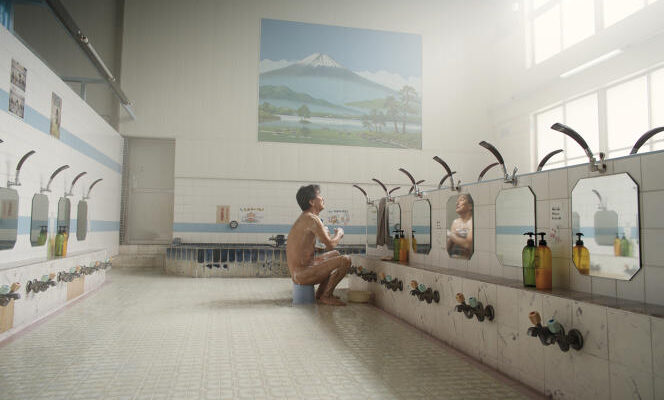OFFICIAL SELECTION – COMPETITION
A long history, spanning almost fifty years, links Wim Wenders to the Cannes Film Festival. It was on the Croisette in 1976 that the German filmmaker, born in 1945, received the International Critics’ Prize for his road movie, Over time – which follows the fate of two estranged men, one of whom travels the country in a movie truck. The Palme d’or will follow for Paris, Texas (1984), the Best Director Award for The Wings of Desire (1987), etc In the meantime, the director and photographer obtained the Golden Lion in Venice with The state of things (1982), a Silver Bear in Berlin for The Million Dollar Hotel (2000), while several of his documentaries, such as Buena Vista Social Club (1999) or pina (2011), were nominated for an Oscar. Depending on the year, a few pearls and other more consensual works.
Perfect Days, new cinematic trip to Japan by Wenders, after Tokyo Ga (1985), in the footsteps of director Yasujiro Ozu, is part of this beautiful collection, Zen mention. Wenders there follows the daily life of a modest man, Hirayama (Koji Yakusho), in his fifties, employed by the city of Tokyo to clean public toilets in the Shibuya district. The character accomplishes his thankless work to perfection, as if the survival of the human species were at stake, thereby regaining a certain dignity.
The routine of this poet of clean toilets, attentive to the slightest sign, curious about everything – a shoot of grass… – is transformed into a sum of upset moments. But, let’s say it all the same, a feeling of deja vu seizes us. Both the subject and the staging remind us of the sumptuous Paterson (2016), by Jim Jarmusch with Adam Driver in the role of a bus driver, author of haikus in his spare time. In competition at Cannes, the film was ignored by the jury then chaired by George Miller.
A hint of drama
Wenders does not leave Hirayama from sunrise to sunset, capturing his rituals, his way of putting on the uniform or taking it off at night. The editing assumes the rehearsals, while modulating the rhythm and the length of the shots (a feast for the eye), spraying a hint of dramaturgy.
Starting from almost nothing, knowing that the tiny, here, is erected into an event, the director weaves a sophisticated story at the end of which his hero reconnects little by little with the world. By concentric circles, first the professional entourage, then the family, the scenario even sketching out a romantic trail. A few characters illuminate the route, such as the young actress Aoi Yamada, Japanese reincarnation of Uma Thurman in pulp Fiction (1994).
You have 39.22% of this article left to read. The following is for subscribers only.
